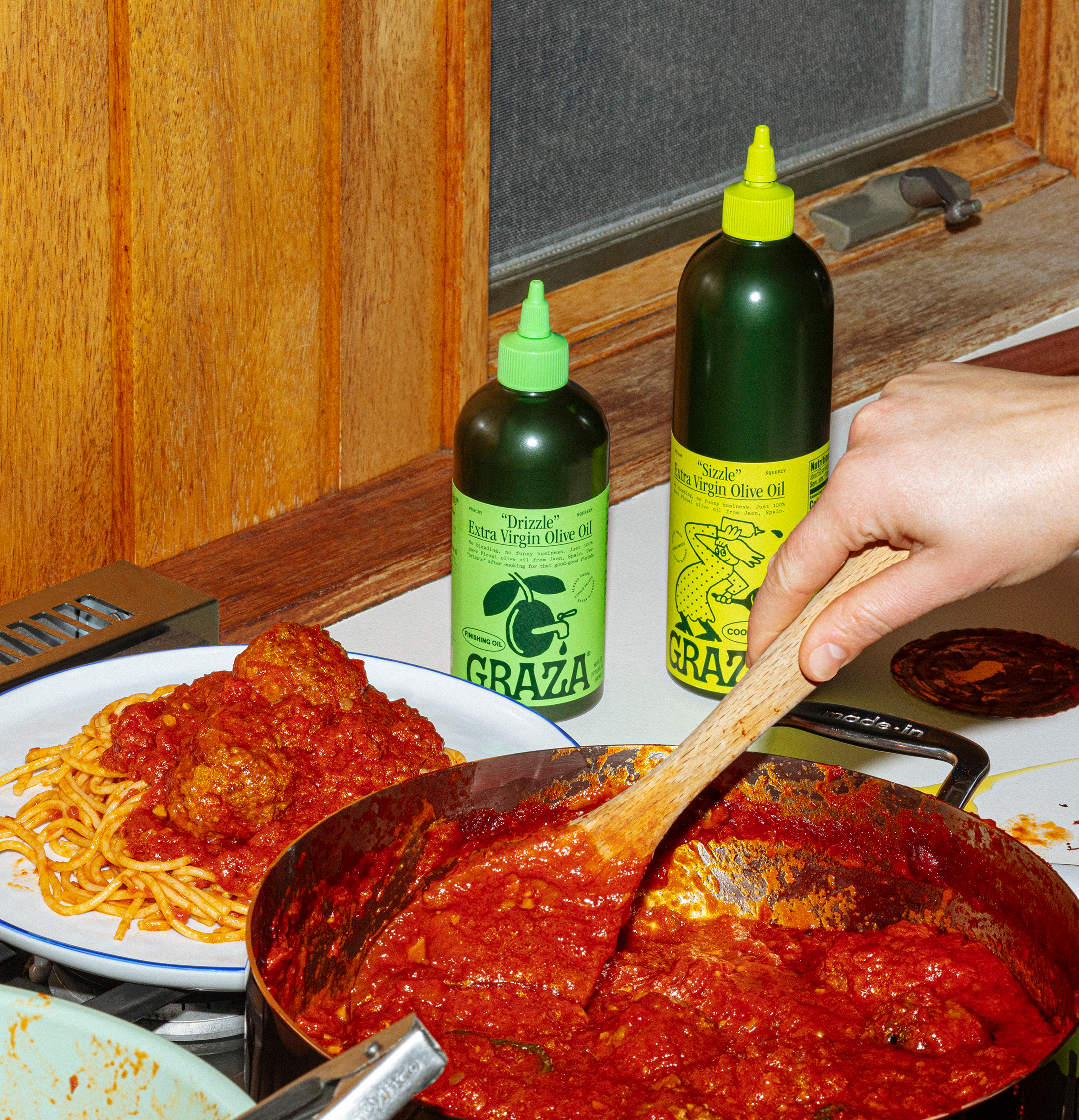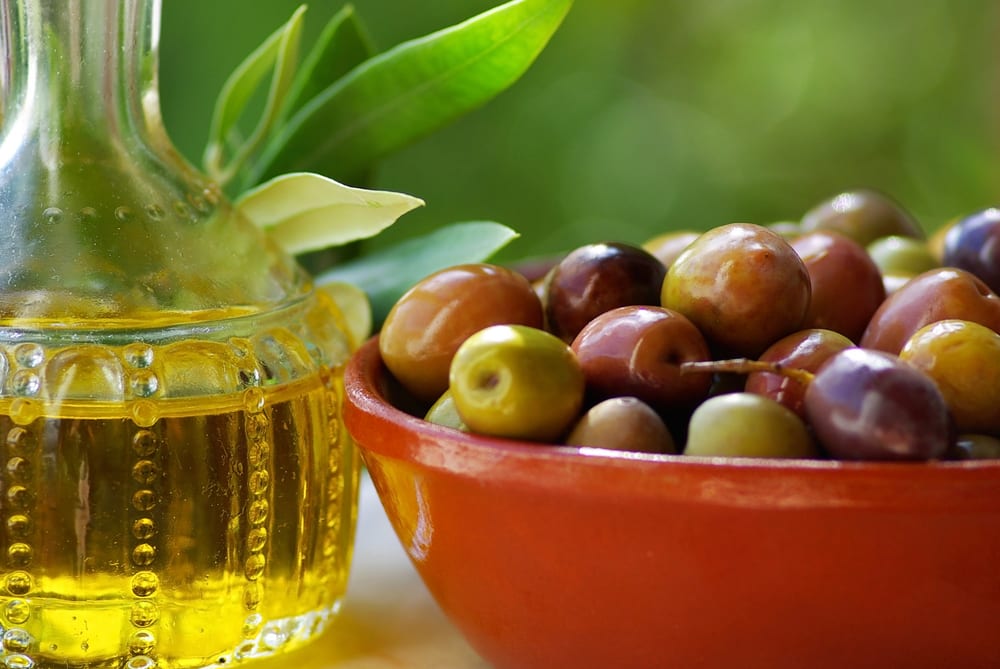Extra Virgin Olive Oil Benefits: A Natural Way to Reduce Inflammation
Extra Virgin Olive Oil Benefits: A Natural Way to Reduce Inflammation
Blog Article
Discovering the Different Types of Olive Oil and Their Usages, Consisting Of Additional Virgin Olive Oil
The expedition of olive oil encompasses a varied variety of kinds, each offering cooking applications and unique flavors. Additional virgin olive oil, renowned for its premium top quality and health and wellness benefits, offers as a staple in lots of kitchen areas, yet it is just one facet of this multifaceted active ingredient.
What Is Olive Oil?
Originated from the fruit of the olive tree, olive oil is a staple in Mediterranean food and a vital active ingredient in numerous culinary applications. This versatile oil is generated by pushing whole olives, causing a fluid that differs in color, taste, and scent depending on the sort of olives used, the area of growing, and the removal procedure. Olive oil is mostly made up of monounsaturated fats, especially oleic acid, which is recognized for its possible wellness advantages, including anti-inflammatory residential properties and cardio assistance.
Along with its culinary uses, olive oil has a long history of application in conventional medicine and skincare, owing to its abundant antioxidant content (extra virgin olive oil benefits). The oil is often used in dressings, sauces, and for cooking approaches such as sautéing and roasting. Its distinctive taste account can enhance the preference of various dishes, making it an essential component for both home chefs and expert chefs
Additionally, olive oil is commemorated for its function in the Mediterranean diet, which is connected with countless wellness benefits. As awareness of these advantages expands, olive oil remains to gain appeal worldwide as a fundamental element of a healthy way of living.
Sorts Of Olive Oil
Comprehending the different sorts of olive oil is necessary for both health-conscious customers and cooking enthusiasts. Olive oil is categorized mainly based on its removal approach and top quality, which dramatically affects its taste, aroma, and health advantages.

Light olive oil, despite its name, refers to a lighter taste and not lower calories. It is perfect for those seeking a much more refined preference in marinades and dressings. In addition, there are flavorful olive oils infused with herbs, spices, or citrus, which can boost recipes without the requirement for added spices.
Each kind of olive oil offers certain culinary objectives, and understanding these differences enables consumers to make educated options that align with their cooking styles and wellness goals.
Extra Virgin Olive Oil
Bonus virgin olive oil (EVOO) is commonly considered the highest possible quality olive oil offered, popular for its rich taste and various health benefits. To be identified as additional virgin, the oil should be produced from fresh olives using mechanical processes, without using solvents or excessive warm. This careful technique preserves the oil's all-natural flavors, anti-oxidants, and healthy fats, resulting in a product with a reduced level of acidity level of less than 0.8%.
EVOO is abundant in monounsaturated fats, specifically oleic acid, which is linked to decreased swelling and boosted heart wellness. It likewise contains polyphenols, powerful anti-oxidants that may supply protective impacts versus persistent conditions. The flavor profile of EVOO can vary significantly depending upon the olive variety and area of production, varying from fruity and grassy to durable and peppery.

Culinary Uses of Olive Oil

In cooking, olive oil can be utilized for sautéing, roasting, and cooking, providing a much healthier option to butter or other fats. Its high smoke point makes it appropriate for numerous cooking methods, while its anti-oxidants add to a heart-healthy diet plan. Showering olive oil over finished dishes, such as pasta, fish, or grilled vegetables, can raise tastes and add a touch of style.
Furthermore, olive oil plays a significant role in cooking, where it can change traditional fats in recipes for bread and pastries, passing on wetness and a refined preference. It likewise acts as a base for instilled oils, allowing chefs to experiment with flavors such as garlic, herbs, or chili, better expanding its culinary possibility. On the whole, olive oil's convenience makes it essential in both home and expert cooking areas.
Finding High Quality Olive Oil
When picking high quality olive oil, it's important to consider several essential aspects that influence the product's wellness, scent, and useful reference flavor advantages. First and primary, choose added virgin olive oil (EVOO), which is stemmed from the very first cool pushing of olives and has the highest degree of anti-oxidants and advantageous compounds. Look for oils that are licensed by recognized organizations, as this commonly makes certain adherence to strict top quality standards.
The packaging also plays a substantial function in protecting the oil's honesty. Choose oils saved in dark glass bottles or tins to secure against light destruction. Pay attention to the harvest date; fresher oils supply superior flavor and dietary worth, so pick items that are within 18 months of their harvest.
Be aware of the preference; an excellent quality olive oil ought to have an equilibrium of fruity, bitter, and peppery notes, suggesting its splendor and complexity. By assessing these factors, you can guarantee you are choosing the best olive oil for your culinary needs.
Final Thought
In summary, the exploration of numerous types of olive oil discloses distinctive qualities and applications, with added virgin olive oil standing for the pinnacle of quality due to its low acidity and high antioxidant web content. Recognizing the different ranges of olive oil allows for informed options in food preparation techniques, advertising you can check here healthier methods while improving the overall gastronomic experience.
Derived from the fruit of the olive tree, olive oil is a staple in Mediterranean cuisine and a key active ingredient in different culinary applications.The most typical kinds of olive oil include refined olive oil, pure olive oil, and light olive oil.Extra virgin olive oil (EVOO) is commonly regarded as the highest quality olive oil available, celebrated for its abundant flavor and various health and wellness benefits. Choose for extra virgin olive oil (EVOO), which is derived from the very first chilly pressing of olives and consists of the highest degrees of anti-oxidants and valuable substances.In summary, the exploration of various types of olive oil reveals distinctive attributes and applications, with added virgin olive oil representing the pinnacle of top quality due to its reduced acidity and high antioxidant content.
Report this page